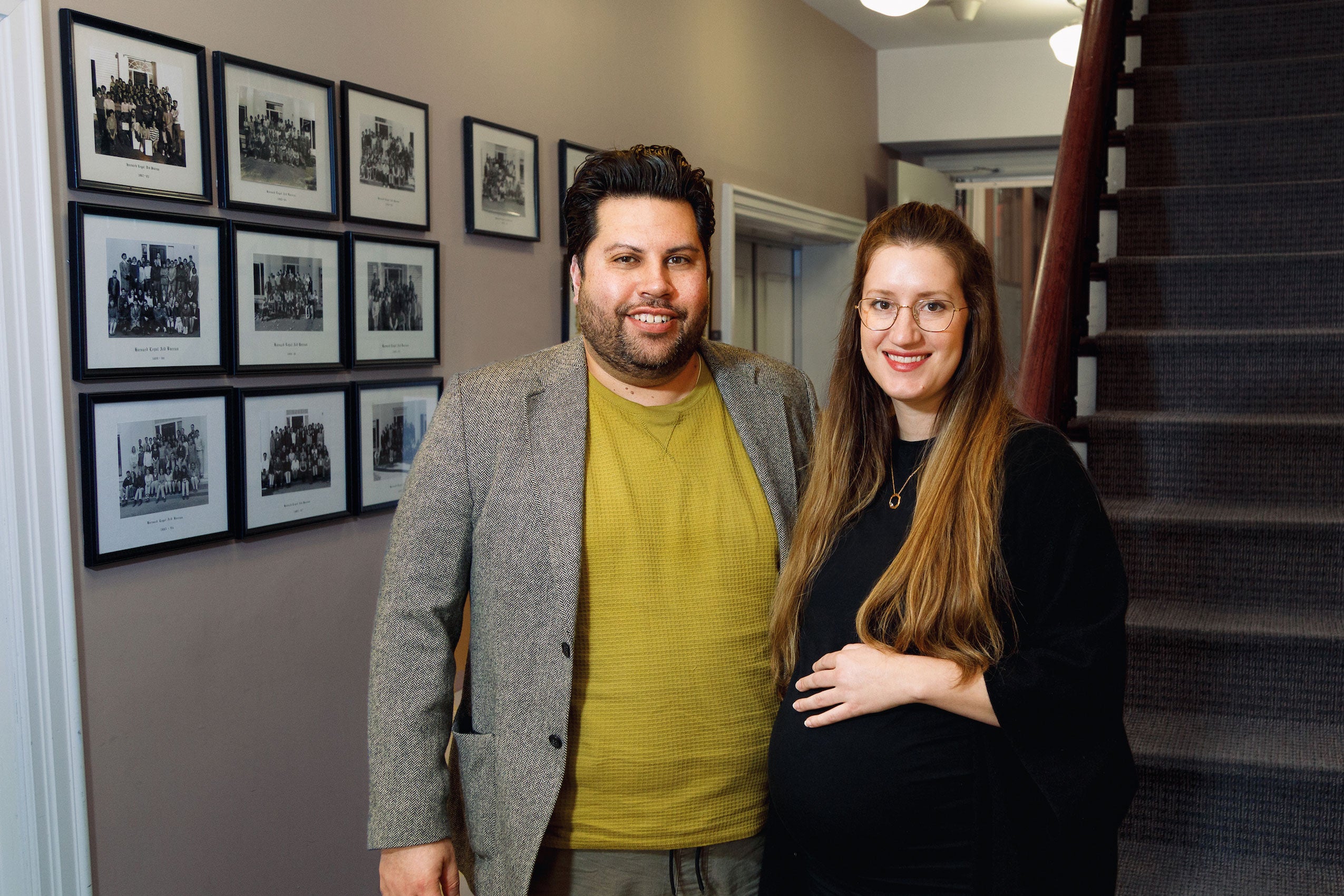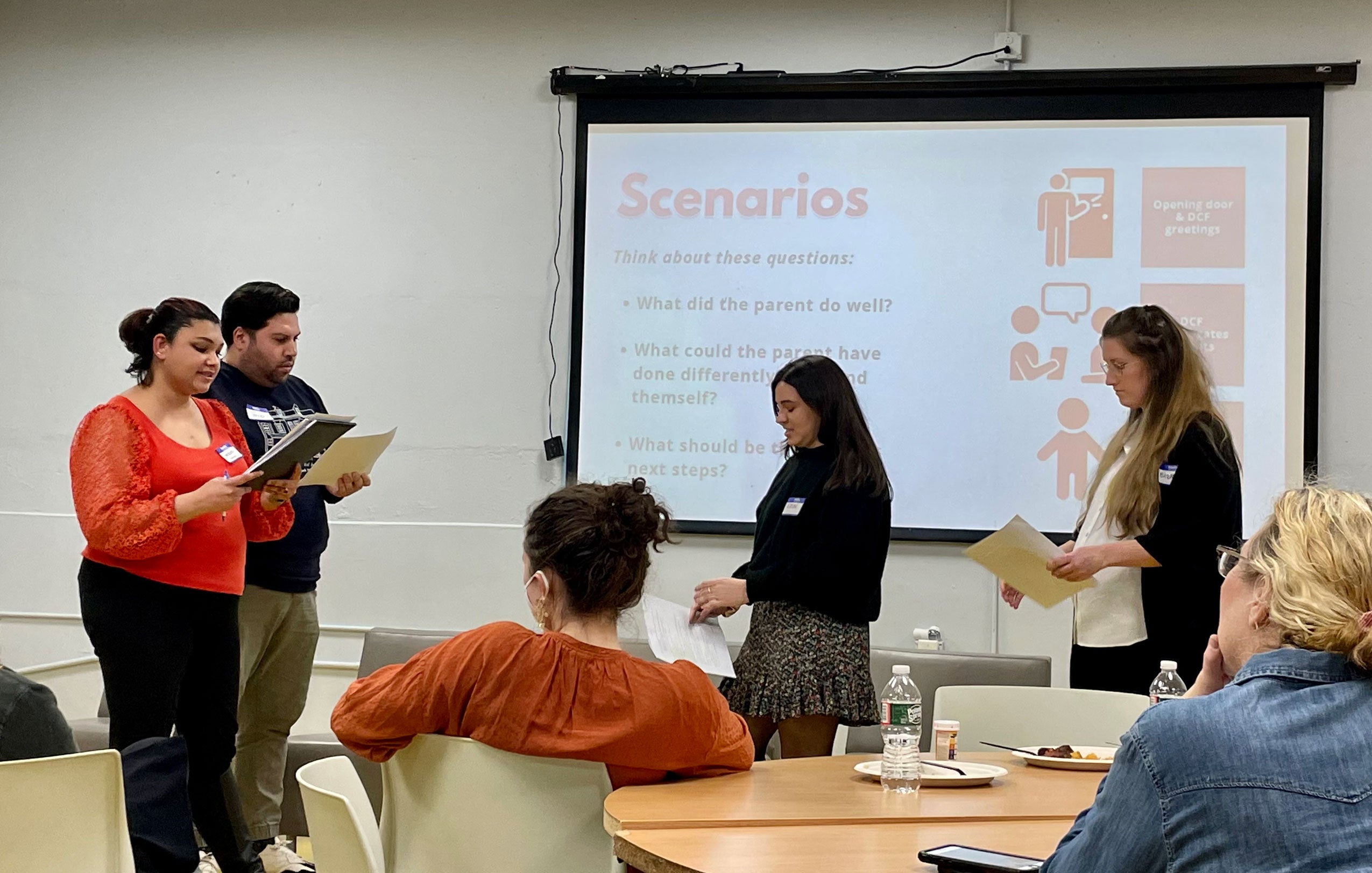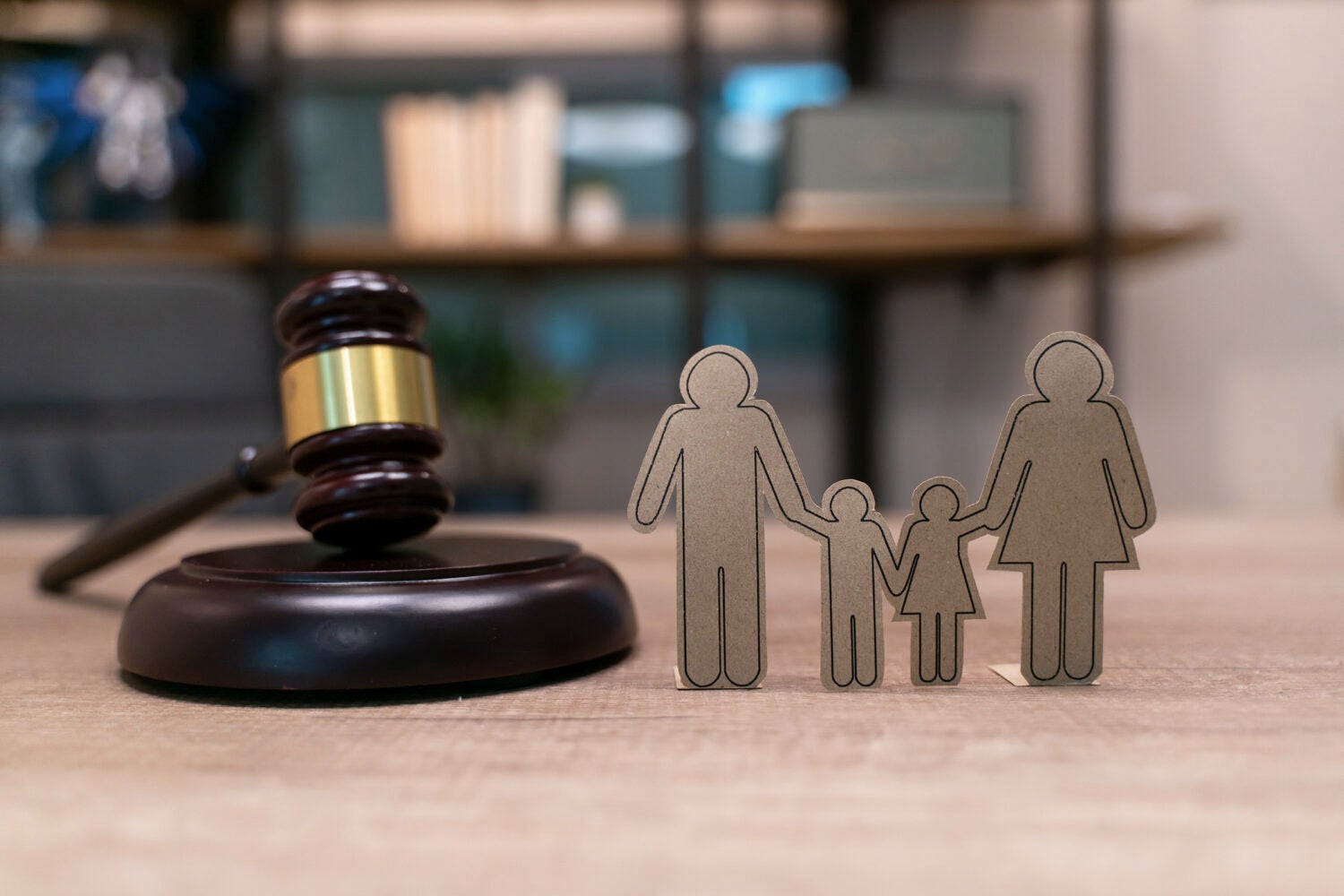For Olivia Murray ’23, witnessing how the criminal legal system interacted with her family and friends in her home state of Florida inspired one of her current interests at Harvard Law School: helping keep families together.
The experiences inform Murray’s work today at the law school’s Legal Aid Bureau assisting parents facing investigations by the Massachusetts Department of Children and Families.
“I think that understanding how DCF often operates very similarly to the criminal legal system in terms of the punitive nature of the actions that they take made me feel strongly about this work and very tied to it because of some of my family’s own experiences,” says Murray, HLAB’s Family Practice Area head and president of the Harvard Defenders.
Chief among those punishments, experts argue, is the unnecessary removal of a child from a home, for days, months, or even years, something Murray and her classmates are trying hard to prevent.
Murray is part of the Family Defense Practice, a newly approved branch of the HLAB’s Family Law Practice that is targeting what the students and professors consider harmful, unnecessary interventions that can remove children from their parents, separating families, sometimes indefinitely. The process can have lasting consequences, they note, and it disproportionally affects economically disadvantaged communities and communities of color.
“A lot of us feel like this work aligns with our values and we want to make sure that in our work we are protecting people from systemic violence,” says Murray. “And so being able to really put this in action and move quickly was really important.”
Student interest in the area of family defense has been intensifying at Harvard in recent years, backed by Jacob Chin and Elizabeth Tuttle Newman ’16 who worked together in the Family Defense Practice at the Bronx Defenders and recently reunited on campus as HLAB clinical instructors. Stephanie Goldenhersh, associate director of HLAB’s Family Law Practice, helped create a family defense model that fits within the overall practice. Together they have been supporting a group of law school students, including Murray, Vandana Apte ’23, Syeda Malliha ’23, and Sarah Blatt-Herold ’23, who led a pilot of the family defense program last year. The detailed work involved determining what types of cases to take, establishing intake procedures, identifying community partners, and ultimately representing seven different clients all facing some kind of action from DCF.
Those involved in the work say they consider it a critical step in pushing back against another form of systemic racism. Numerous studies indicate discrimination in child welfare is a nationwide problem, including a 2021 article published by the National Academy of Sciences that found contact with child protective services in the nation’s 20 most populous counties “unequally distributed by race and ethnicity.” According to DCF’s 2022 Annual Report, Black and Hispanic children are 2.3 times more likely to be referred to the Department through a 51A report of abuse or neglect, though the screen-in rates, meaning the case is assigned a Child Protective Services response, “are near equivalent across race and ethnicity when compared to relative rates of 51A reporting,” the report notes. The overall effect is that Black and Hispanic children are represented at a higher rate in the system.
“People are now calling child welfare family policing.”
HLAB Clinical Instructor Jacob Chin
Many scholars, including University of Pennsylvania professor of law and sociologist Dorothy Roberts ’80 have devoted much of their research to the topic. In her 2022 book “Torn Apart: How the Child Welfare System Destroys Black Families — and How Abolition Can Build a Safer World,” Roberts points to racism in the nation’s child welfare system and calls for a new way forward.
Chin agrees.
“People are now calling child welfare family policing,” says Chin. “It’s about the government over policing poor Brown and Black families in the same way local law officials over police poor Brown and Black communities of color.”

Helping a parent know their legal rights is a critical first step in keeping families from being separated over a wrongful claim initiated by a doctor, teacher or social worker who often mistake poverty for neglect, say members of HLAB. “Roughly 80 percent of all child welfare investigations nationally involve some charge of neglect,” notes Tuttle Newman. “In practice, neglect and poverty are so conflated in this system to the point of being indistinguishable.” That kind of confusion can mean parents are often punished for conditions of poverty, such as a dirty home, a shortage of food, or a missed medical appointment for their child due to a lack of transportation.
Chin cites the example of a recent case involving a 14-year-old who was watching over an eight-year-old sibling because their parents couldn’t afford daycare. “This was considered neglect, and families are regularly separated for these reasons alone for years, and sometimes permanently.”
“When we target poor families for not having food in the fridge, we are wasting resources on punishing people when we could be supporting them.”
Olivia Murray ’23, HLAB’s Family Practice Area Head and president of the Harvard Defenders
To stem that cycle, early intervention and advocacy, members of HLAB say, is key. For the past year students have been representing clients at DCF hearings in an effort to get unfair findings of abuse or neglect overturned. They’ve also sat in on DCF assessments during home visits, and helped clients negotiate action plans drafted by child welfare officials.
And they have been spreading the word. As part of their work HLAB students, in collaboration with Harvard’s WilmerHale Legal Services Center, conducted their first “Know Your Rights” training in February with the local community group Family Matters First. Eager for maximum impact, students developed a script based on a fictional encounter between a parent, a child, and DCF worker.
They then acted the scene out for the audience, says Apte, who played the parent, pausing frequently to offer up advice and letting attendees know they have the right to refuse entry to DCF representatives, something that can be confusing when they arrive accompanied by the police. They also made it interactive, asking the audience to critique what parent in their scenario did well, what they could have improved on, and how they could have best advocated for themselves in a situation when they find DCF knocking on their door.
“Instead of talking at folks through a PowerPoint for an hour, we thought it would be much more engaging to act out something that they may have or will encounter,” said Apte. “We want them to know their rights and that help is out there.”

Apte is also working on a set of informational materials that can help educate mandated reporters, such as teachers or doctors who are legally required to report a suspected case of abuse or neglect to DCF. “We want to alert them to the potential harm that a report can cause and explore ways in which they can mitigate some of that harm in the event that they do have report it,” says Apte, such as involving parents in the process, ensuring the report is filed accurately, and helping them recognize the difference between poverty and neglect.
The students are also spreading their message across the Harvard community and beyond. They’ve presented their work to other HLAB clinics, encouraging law school students to reach out of they have clients who might be involved with DCF. And Apte recently spoke via Zoom at a national meeting for other legal organizations, law schools, and parent advocates supporting clients undergoing child welfare investigations or conducting similar trainings in their local communities.
Murray says she looks at the child welfare problem through an abolitionist lens, one focused on dismantling the current system in favor of critical supports and services that will help families, parents, and children survive and thrive.
“Targeting poor and Black and brown families doesn’t protect children, and it doesn’t get us closer to a world where children are free from serious abuse” says Murray. “When we target poor families for not having food in the fridge, we are wasting resources on punishing people when we could be supporting them, and we could also be using our resources to develop non-carceral ways to address all interpersonal violence, including things happening in families and to children.”
Learn more about HLAB
Want to stay up to date with Harvard Law Today? Sign up for our weekly newsletter.
